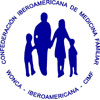Association between adherence to treatment and quality of life in the elderly
Resumo
Introduction: The pharmacological adherence is defined as the magnitude of a patient's behavior coincides with the advice of your doctor and understanding prescription . Compliance express understanding and cooperation , implying the ability of the elderly to work actively against the self-care and facing aging with better quality of life.
Objective: The objective of this study was to identify the profile of elderly pharmacological adherence in the treatment of chronic diseases , associating clinical and demographic factors and quality of life.
Methodology or experience description: This is a cross-sectional observational study, a population-based, conducted through structured interviews , through home visits . Data collection occurred in the area range from two Family Health Strategy of Passo Fundo, Rio Grande do Sul , and used a general survey, the Morisky- Green test and instrument to assess quality of life Whoqol-Old. The protocol was approved by the ethics committee of the University of Passo Fundo. The results were analyzed by descriptive statistical inference. The chi-square test was used for qualitative variables. For quantitative variables we apply the T-Student test, with a significance level of 5%.
Results: The pharmacological treatment was observed for 70.4 % of the 301 elderly and associated factors were: being retired (p = 0.032), reading and writing (p = 0.034), receiving some help from family or friends (p = 0,001), receiving guidance from health professionals to the use of medications (p = 0.002), self-medication or use of other remedies such as teas, herbs, homeopathy (p = 0.020). The satisfaction of the elderly with their current health status resulted in better drug adherence (p = 0.025) and Family Health Strategy source also potentiated this behavior (p = 0.001). The overall average score of quality of life was significantly higher among elderly patients with treatment adherence.
Conclusions or Hypothesis: We conclude that pharmacological adherence to treatment of chronic diseases has reached higher than the national prevalence rates, being influenced positively by way of living and quality of life of the elderly , as well as the guidelines received from the Family Health Strategy professionals.
Palavras-chave
Texto completo:
PDF (English)Apontamentos
- Não há apontamentos.
Este periódico é de responsabilidade das associações:
Apoio institucional:







